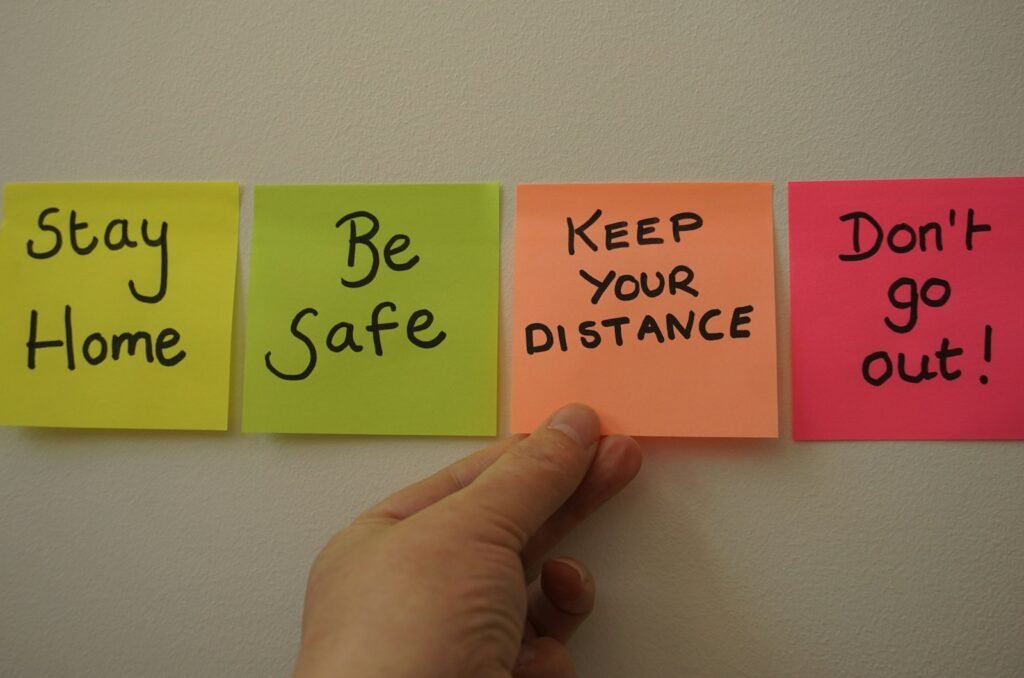Click below to listen to this article:
The Four goals of misbehaviour

Photo by Sarah Kilian on Unsplash
The four rules of misbehaviour are a framework proposed by Dr. Rudolf Dreikurs, a psychiatrist who was influenced by the social psychologist Alfred Adler. According to Dreikurs, all human behaviour is motivated by the need to belong and be accepted by others, and all misbehaviour is the result of a child’s mistaken assumption about how to achieve this goal.
According to the Adlerian perspective, children’s misbehaviour is not random, but rather has a psychological goal (Dreikurs, 1948). Dreikurs identified four main goals of misbehaviour: attention, power, revenge, and inadequacy. These goals are based on the child’s mistaken belief that they can only belong or be significant by behaving in certain ways. Here is a brief explanation of each goal:
Attention
The child believes that they belong only when they get noticed or acknowledged by others. They seek constant attention and service from adults, and may act in annoying or disruptive ways to get it. The adult’s typical reaction is irritation or annoyance, and they may try to remind or coax the child to stop. The child’s coded message is “Notice me, involve me usefully” (Gfroerer, 2020).
Power
The child believes that they belong only when they are in control or bossy, or when they prove that no one can boss them. They seek to challenge or defy the adult’s authority, and may act in rebellious or aggressive ways to do so. The adult’s typical reaction is anger or provocation, and they may try to fight or give in to the child. The child’s coded message is “Let me help, give me choices” (Gfroerer, 2020).
Revenge
The child believes that they belong only by hurting others as they feel hurt, and that they cannot be loved. They seek to inflict pain or damage on others, and may act in spiteful or vengeful ways to do so. The adult’s typical reaction is hurt or shock, and they may try to retaliate or get even with the child. The child’s coded message is “Help me feel I matter” (Gfroerer, 2020).
Inadequacy

“trauma and dissociation Perhaps the most liberating moment in my life was when I realized that my self-loathing was not a product of my inadequacy but, rather, a product of my thoughts. – Vironika Tugaleva, The Love Mindset #mentalhealth #selfhatred #wede” by TraumaAndDissociation is licensed under CC BY-ND 2.0
The child believes that they belong only by convincing others not to expect anything from them, and that they are hopeless or helpless. They seek to avoid any challenge or responsibility, and may act in passive or withdrawn ways to do so. The adult’s typical reaction is despair or pity, and they may try to rescue or give up on the child. The child’s coded message is “Don’t give up on me” (Gfroerer, 2020).
Understanding the goals of misbehaviour can help adults respond in more effective and empathic ways that address the underlying needs of the child and foster their sense of belonging and significance.
Applicable to Adults Too
Dreikurs suggested that these four goals of misbehaviour can be applied to adults as well as children. He argued that adults also have the same need to belong and be accepted by others, and that they may also adopt mistaken ways of achieving this goal based on their early childhood experiences (Dreikurs & Soltz, 1990). For example, an adult who seeks undue attention may constantly interrupt conversations or demand special privileges; an adult who seeks misguided power may resist following rules or instructions or try to dominate others; an adult who seeks revenge may hold grudges or sabotage others’ success; and an adult who assumes inadequacy may avoid taking risks or responsibility or blame others for their failures.
Dreikurs did not advocate for using punishment, rewards, or praise to change misbehaviour, but rather for using natural consequences and encouragement to help children and adults develop a sense of belonging and significance in positive ways. He also emphasized the importance of understanding the purpose and goal of misbehaviour before responding to it, and of addressing the underlying needs and feelings of the person rather than reacting to the surface behaviour (Dreikurs & Soltz, 1990).
Interaction with Attachment Theory
Looking at the four goals of misbehaviour, and framing them in Attachment theory. We can see that attention seeking is a normal coping response to a child’s need for carer attention, and that we can suggest that people who attention seek, were probably conditioned by their caregivers to become more and more inventive, or curiosity raising, in their attempts to get fed. Those attempts were ultimately satisfied by that behaviour, and that this “continuum” did not progress.
I say this, because if they give up on attention seeking, then they will move into abandonment patterns. Firstly, they will start to have feelings of inadequacy – the child blames itself, and accepts that it is not worth attention, and therefore worthless, and in constant need of help, no matter how poor or ineffectual.
Unless, they start to blame their caregivers or another target, if so, then they, depending on their attachment story, will either seek revenge, or power over others, in some attempt to stop it happening again.
Attachment Hierarchy of Misbehaviour Goals
| Dreikurs Goal | Attachment Function | Caregiver Response → Child Adaptation | Adult Pattern |
|---|---|---|---|
| Attention | Secure Base Seeking | Inconsistent responsiveness leading to inventive bids (curiosity-raising antics for feeding/proximity) | Chronic attention-seeking as a result of “only being noticed when dramatic”; parenting has reinforced escalation without ineffectual resolution |
| Inadequacy | Self-Blame Internalization | Attention fails, leading to thoughts of, “I’m unworthy” (avoids abandonment risk); assumes helplessness | Learned worthlessness – constant support needed, the “ineffectual victim”, gives up on their own agency |
| Revenge | Protest/Disorganized | Blames caregivers as a form of hurt retaliation (externalizes pain to regain control) | Blaming targets – attacks “failed” helpers/parents; cycles hurt into a need to “get even” |
| Power | Avoidant/Anxious Control | Power over others in order to pre-empt future abandonment (“control = safety”) | Dominance/compulsion – “never vulnerable again”; rigid self-reliance |
Dreikurs Goals as an Attachment Cascade: Clear Mapping
It seems pretty clear that these responses to a child’s unfulfilled needs, become a form of caregiver and environmental conditioning, that encourages the individual to adopt negative, incongruent life positions that lead to many forms of personality disorder.
Correspondence with Attachment styles
| Dreikurs Goal | Attachment Stage | Child’s Discouraged Belief | Caregiver Mistake → Child Escalation |
|---|---|---|---|
| Attention | Protest (Secure Base) | “I belong only if noticed” | Inconsistent response – inventive bids (your point: curiosity-raising for food/attention) |
| Inadequacy | Despair (Self-Blame) | “I’m worthless, need help” | No reliable attention – internalizes defectiveness, quits trying |
| Revenge | Disorganized Protest | “They hurt me, hurt back” | Blames caregivers – retaliates to regain control |
| Power | Avoidant Control | “Control others = safe” | Masters environment pre-emptively (no vulnerability) |
Adult Outcomes
- Attention Adult: Drama addicts, looking for drama’s to exaggerate and amplify, blame shifting.
- Inadequacy Adult: Victim mode, avoidance, or needy behaviour.
- Revenge Adult: Blame cycles, leading to narcissistic temperaments.
- Power Adult: Controllers and perfectionists, obsessions
Dreikurs Goals: Attachment Evolution
Each goal can be seen to be a developing attachment need, which then develops into precise adult patterns directly resulting from inconsistent attachment and incongruent childhood coping responses that transfer the need onto others, later in life:
Reactive Goals of Passive Adaptation
| Dreikurs Goal | Attachment Root | Adult Evolution |
|---|---|---|
| Attention | Anxious – Proximity desperation | Groomed people-pleasing – inventive bids – fawning responses, approval addiction |
| Inadequacy | Despair – Self-blame internalization | Imposter syndrome + toadyism – copy/obey authority leading to manipulation of others to enforce it (proxy power) |
Proactive Goals of External Aggression
Evidence: Anxious attachment → people-pleasing/imposter (fawn survival). Disorganized → revenge projection.
Toadyism: Inadequacy seeks authority Conformance leading the individual to delegate control to others (enforces parental IWM externally).


0 Comments